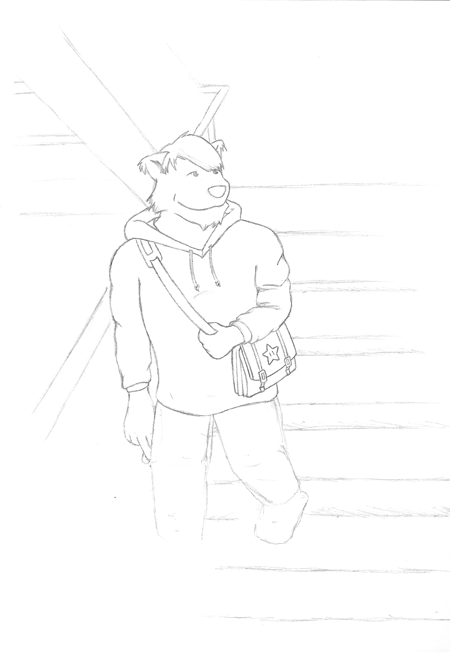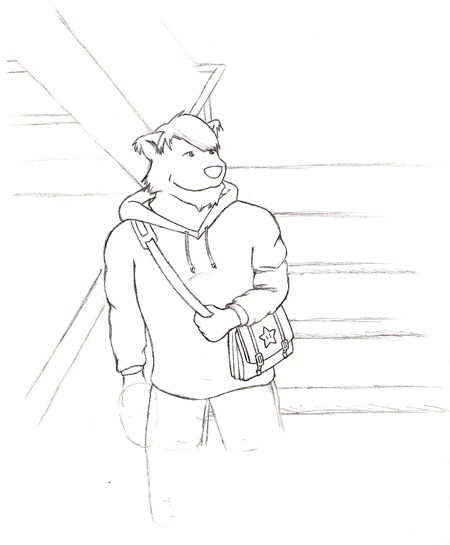“Hey, who’s there?â€
Someone was behind me, on the bridge.
Sucks to be them.
No, that’s not good at all. Bodies would be worse than witnesses. But the fuse was still going and I was too far away now to stop it.
Nothing to do but keep running, now.
The sky lit up behind me a split second before I heard the blast.
The damage was done. I only hoped there would be nothing left of the man to find; they’d look a lot harder for a murderer than a saboteur.
But I wasn’t ready to be a murderer.
The temple of Aiol at Aleksandreï is the largest structure in the city these days. Regardless of how important I became, though, I still felt like the smallest thing in it.
Not that I ever managed to become very important. From my first year in the service of the god, when it became clear I had no aptitude for the divine engineering, I was relegated to a clerical position. That, though, I was good at, and soon enough I was managing most of the temple’s secular affairs.
Then the railroads came—a perpetual headache.
It seemed simple enough in principle—Aiol, the god of winds, had handed down the principles of harnessing wind and steam and smoke to do the work of men. And, certainly, carrying trains of wagons to all parts of the world was work the divine engineering could handle, but it hardly seemed worth the expense.
After all, the trains would only run if the rails were perfect.
In the cities, that was easy. But even along the rail from Aleksandreï to Bousantie there was quite a bit of countryside—opportunities for thieves and peasants to steal the iron, for trees to fall, for lands to flood—delays and repairs, delays and repairs.
And now they want a railroad built all the way to Tianan in the country of the Sers—did they never learn ambition is a vice?—but with the support of a god, many things are ventured.
I had only met the god Aiol once. I was still, at the time, trying to understand the principles of steam-powered machines, when he came into the classroom where I was studying.
For those who have never seen a god, I should say they are very like their pictures—like a hornless satyr from the waist up, but with feet almost like an ape, though without the thumbs they have. He looked young; but the gods are young when they choose to be.

 I ran out of drawing time before I could get it right, so he’s just got an outline at the moment.  ¬.¬
I ran out of drawing time before I could get it right, so he’s just got an outline at the moment.  ¬.¬